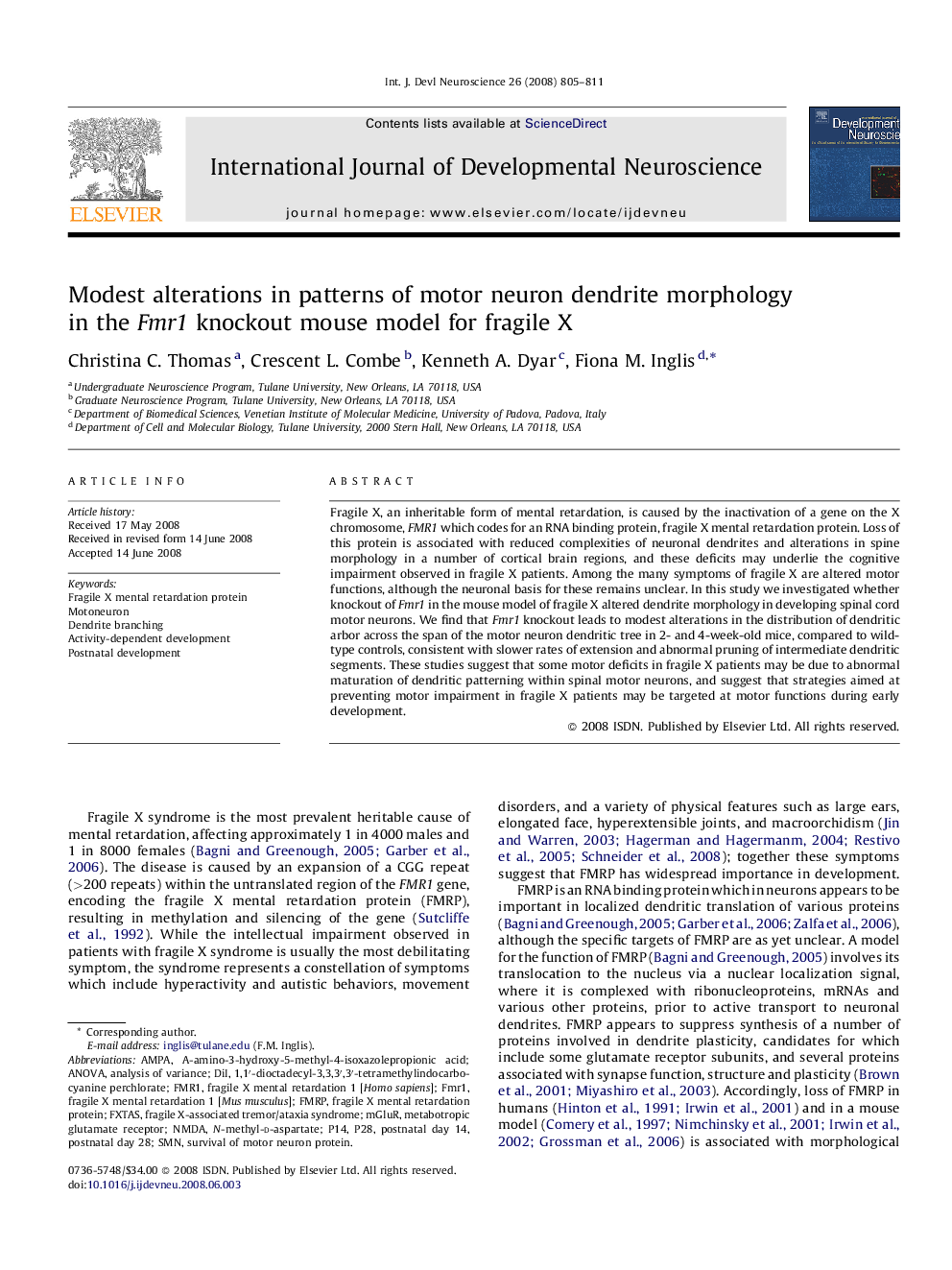| Article ID | Journal | Published Year | Pages | File Type |
|---|---|---|---|---|
| 2786996 | International Journal of Developmental Neuroscience | 2008 | 7 Pages |
Fragile X, an inheritable form of mental retardation, is caused by the inactivation of a gene on the X chromosome, FMR1 which codes for an RNA binding protein, fragile X mental retardation protein. Loss of this protein is associated with reduced complexities of neuronal dendrites and alterations in spine morphology in a number of cortical brain regions, and these deficits may underlie the cognitive impairment observed in fragile X patients. Among the many symptoms of fragile X are altered motor functions, although the neuronal basis for these remains unclear. In this study we investigated whether knockout of Fmr1 in the mouse model of fragile X altered dendrite morphology in developing spinal cord motor neurons. We find that Fmr1 knockout leads to modest alterations in the distribution of dendritic arbor across the span of the motor neuron dendritic tree in 2- and 4-week-old mice, compared to wild-type controls, consistent with slower rates of extension and abnormal pruning of intermediate dendritic segments. These studies suggest that some motor deficits in fragile X patients may be due to abnormal maturation of dendritic patterning within spinal motor neurons, and suggest that strategies aimed at preventing motor impairment in fragile X patients may be targeted at motor functions during early development.
